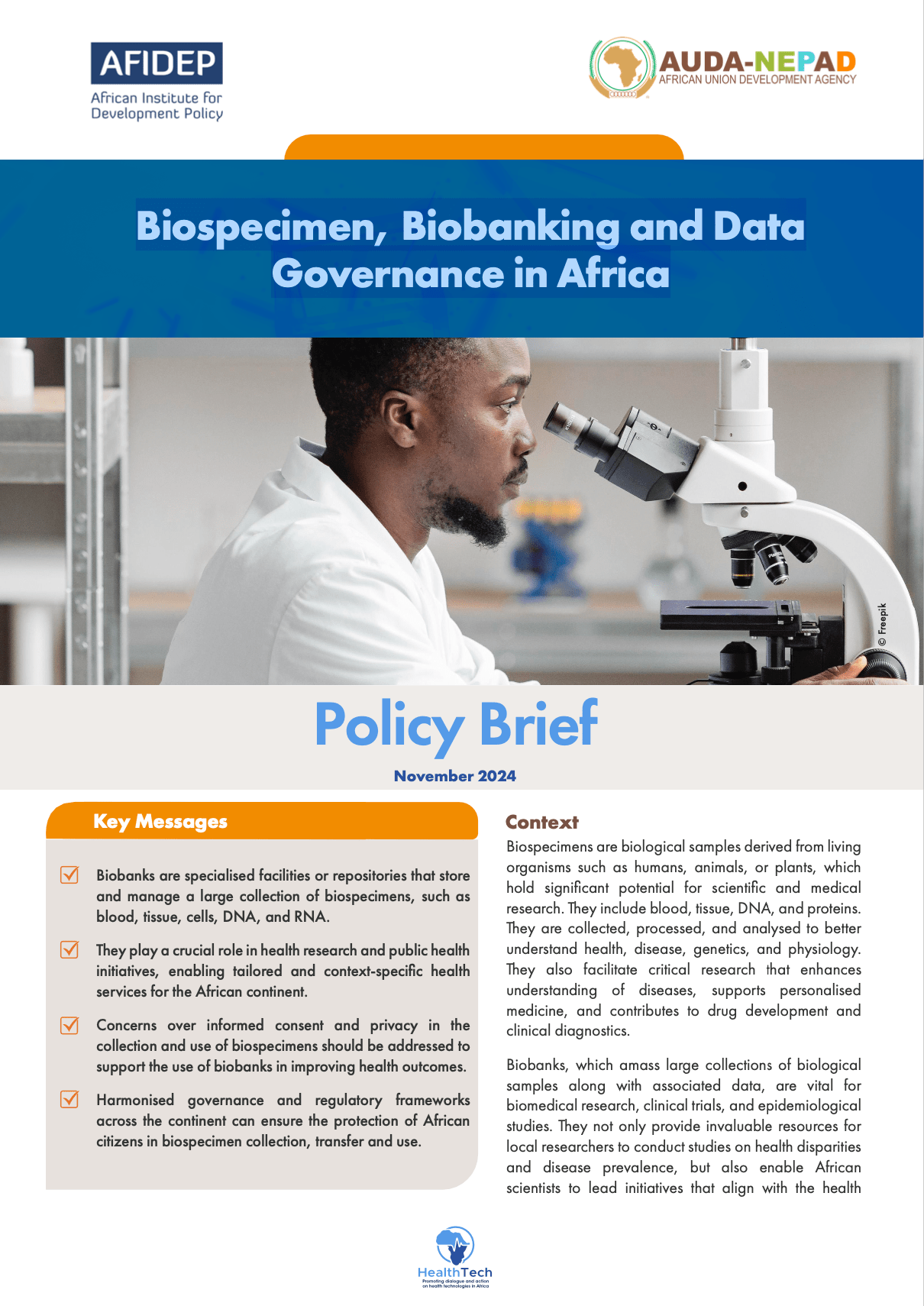A biobank is a specialised facility that stores and manages a large collection of biospecimens, along with associated data. These repositories offer valuable resources for research and discovery, and provide samples for genetic studies, clinical trials, epidemiological research, and the development of new treatments and diagnostics.
Applications of Biobanks in Africa
Biobanks are vital for research in Africa for several reasons:
- They provide access to a wide range of biospecimens, enabling high-quality studies on various health issues, diseases, and genetic variations.
- They support precision medicine by helping tailor treatments to individual patients based on their genetic and environmental factors.
- Establishing biobanks enhances local research infrastructure and fosters collaborations among African researchers and international partners.
- Biobanks address health disparities by supporting research on diseases prevalent in African populations.
- They offer valuable data for disease surveillance, outbreak response, and health policy development.
- Biobanks in Africa provide a platform to develop and implement ethical guidelines for biospecimen collection and use.
Examples of Practical Application of Biobanks in Africa
- H3Africa Biobank Network: As part of the H3Africa initiative, this network spans multiple African countries, including South Africa, Nigeria, Kenya, and Uganda, and focuses on genetic and environmental research
- South African National Cancer Biobank: This biobank collects and stores cancer-related biospecimens to support research on cancer biology and personalised medicine
- East African Consortium for Clinical Research Biobank: Involving Kenya, Uganda, Tanzania, and Rwanda, this biobank supports research on infectious and non-communicable diseases in the region
- Nigerian Institute of Medical Research Biobank: A national facility focusing on infectious diseases, genetic disorders, and maternal and child health in Nigeria
- Moroccan Human Genetics Biobank: This biobank supports research on genetic diversity and disease susceptibility in Morocco and North Africa
- African Genome Variation Project Biobank: Collects biospecimens across Africa to study genetic variation and support biomedical research.
Policy Recommendations to Increase Biobanking in Africa
To advance biobanking in Africa, policymakers should implement the following policy recommendations:
- Establish laws and regulations governing biospecimen collection, storage, and use.
- Develop guidelines for biobank operations, including sample handling and data management.
- Create transparent governance mechanisms with ethics committees and advisory boards.
- Implement comprehensive ethical standards for biobanking activities.
- Ensure robust measures for data protection and privacy.
- Provide training and resources for stakeholders involved in biobanking.
- Involve diverse stakeholders in decision-making to align biobanking activities with community needs and expectations.
Biobanks play a pivotal role in advancing scientific research and improving healthcare by storing and managing a vast array of biospecimens. They facilitate high-quality studies on health, genetics, and disease, particularly in Africa where they also support precision medicine, address health disparities, and enhance research infrastructure. To maximise the benefits of this technology, Africa must support the ethical and effective use of biospecimens, advancing both regional and global health outcomes.
